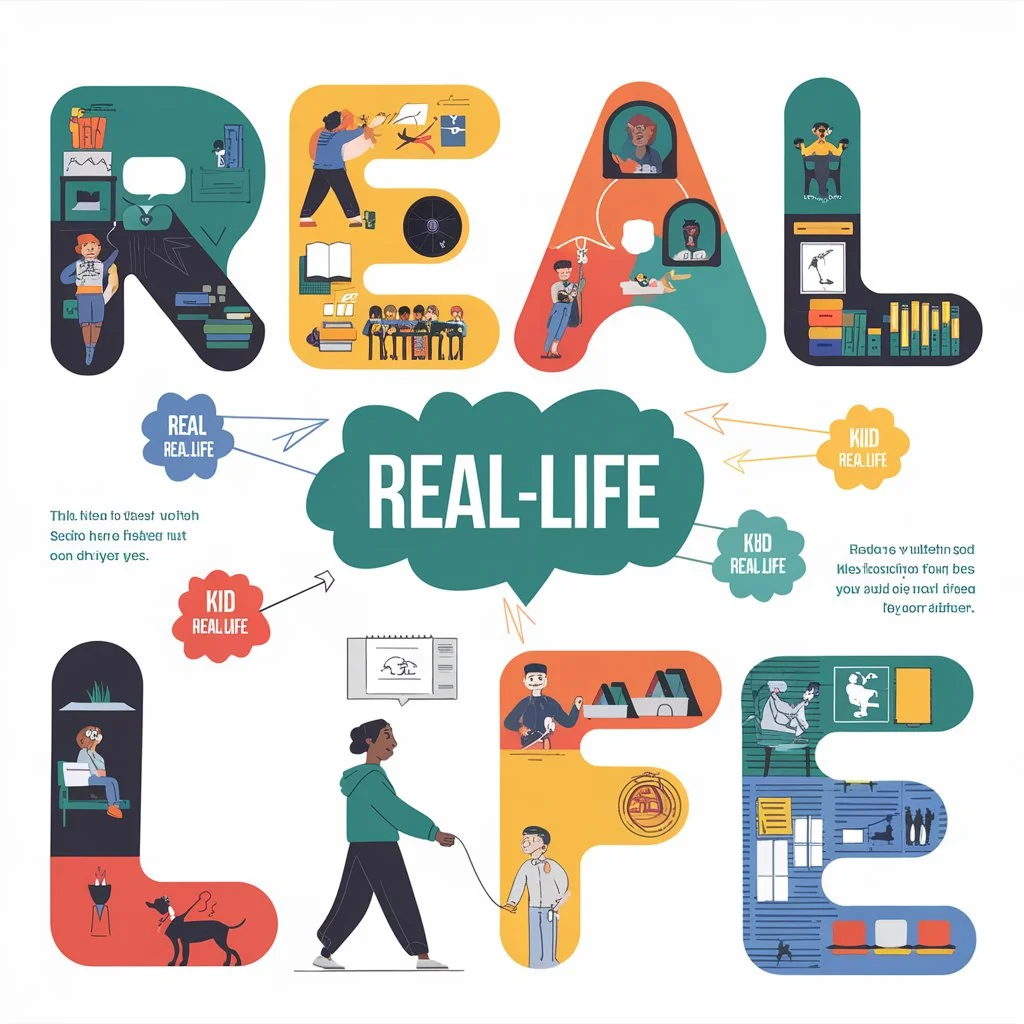Real life” or “real-life” are both correct, but their usage depends on the context of your sentence. Essentially, “real life” is used as a noun when a subject is already in the sentence. On the other hand, “real-life” is used as an adjective when it comes before a noun. The key difference is that the hyphenated form modifies a noun directly, while the unhyphenated form stands as a noun by itself.
The correct usage of “real life” versus “real-life” can be tricky, but mastering it will greatly improve the clarity of your writing. Both forms are correct, yet their usage differs based on the sentence structure. “Real life” is typically used as a noun, while “real-life” serves as an adjective to describe a noun.
Understanding when to hyphenate can help you communicate more effectively, especially in formal writing or AP-style contexts. This guide will provide key insights into how and when to use these variations and answer some of the most common questions on the topic.
Is Real Life Hyphenated in AP Style?
In AP style, hyphenation is used to link two words closely together, ensuring the reader understands they work as a unit to modify a noun. In most cases, two words like “real-life” are hyphenated when they are used to describe a noun that follows. For instance, saying “real life experience” would be incorrect in AP style, as it lacks the necessary link between “real” and “life”. To correct this, you would say “real-life experience” to clarify that the adjective pair is modifying the noun.
Should I Capitalize “Life” in “Real-Life”?
When it comes to capitalization, it depends on the style guide or personal preference you’re following. Typically, “Real-Life” with both words capitalized can be correct in a title if that fits your chosen style. There are two main approaches to capitalization in titles:
- Sentence case – You only capitalize the first word and any proper nouns (e.g., “Real-life drama”).
- Title case – Most words are capitalized, except articles, short prepositions, and short conjunctions (e.g., “Real-Life Drama”).
Both options are acceptable, and many writers choose the one that fits their aesthetic or guideline best.
Examples of When to Use “Real Life” Without a Hyphen
Though it’s less common, there are specific instances where “real life” without a hyphen is correct. Let’s explore a few examples:
- I have a real life. In this case, “real” is the adjective describing “life,” and no hyphen is needed.
- You’re a real life saver. Here, “real” is an adjective and “life” is a noun that together form a phrase, but without modifying a third noun.
Examples
- I want to live a real life, free from pretense.
- In real life, things don’t always go as planned.
- She dreams of a real life beyond her computer screen.
- He’s a real life hero to those he’s saved.
- Real life can be stranger than fiction sometimes.
- The movie was based on a real life story.
- In real life, their friendship is much deeper than on social media.
- I’ve been dealing with a lot of real life problems lately.
- He found it hard to distinguish between fantasy and real life.
- The game tries to simulate real life scenarios.
- Real life situations often demand patience and resilience.
- The actors portrayed real life characters from history.
- She wants to escape her mundane routine and experience real life.
- He’s much more confident in real life than he seems online.
- Their real life adventure was far more exciting than they expected.
Examples of When to Use “Real-Life” with a Hyphen
More commonly, you’ll encounter the hyphenated form “real-life” in sentences. Here are some examples:
- I have a real-life drama. “Real-life” serves as an adjective modifying the noun “drama.”
- That was a real-life experience. Again, “real-life” modifies “experience” as an adjective.
- When you have real-life problems, let me know. Here, “real-life” describes the noun “problems.”
Examples
- She had a real-life adventure in the Amazon rainforest.
- The movie was inspired by a real-life event.
- He faced a real-life challenge that tested his courage.
- That book tells the story of a real-life hero.
- The documentary focused on real-life struggles of refugees.
- He shared a real-life experience from his childhood.
- The show is based on real-life events.
- Her real-life story was more fascinating than fiction.
- They encountered real-life problems during their travels.
- The article explored real-life scenarios faced by doctors.
- She gave a real-life example of overcoming adversity.
- His real-life determination led him to success.
- The play was inspired by real-life figures from history.
- They used real-life case studies to analyze the issue.
- The project involved solving real-life issues related to climate change.
Alternatives to “Real Life”
If you’re still unsure about when to use a hyphen, or if you’d like to switch things up, there are several alternatives to “real-life” or “real life.” These synonyms are useful for avoiding hyphenation confusion:
- Authentic A strong, singular adjective that can easily replace “real-life” without the need for a hyphen.
- Real-world Although still hyphenated, this phrase is a great substitute and serves a similar purpose.
- Bonafide A Latin-origin word that means genuine or authentic, and it adds a touch of sophistication to your writing.
Quiz – Real Life or Real-Life?
Let’s test your understanding with a quick quiz! Choose the correct option to complete each sentence:
- We’ve got a (A. real-life / B. real life) situation here.
- This microwave was a (A. real-life / B. real life) saver.
- I went through the (A. real-life / B. real life) experience. It was great.
- Don’t you want a (A. real-life / B. real life)?
- We’re (A. real-life / B. real life) people, and we have (A. real-lives / B. real lives).
Quiz Answers
- A
- B
- A
- B
- A, then B
By following these guidelines, you’ll be able to confidently decide when to use “real life” or “real-life” based on the structure of your sentence!
FAQs
When should I use “real life” without a hyphen?
You should use “real life” without a hyphen when you are referring to the concept as a noun. For example, in the sentence, “I have a real life,” “real” is the adjective and “life” is the noun, and no additional hyphen is necessary. In cases like this, “real life” stands alone without directly modifying another noun. It’s important to remember that this form is less common than the hyphenated version in everyday speech.
When is it correct to use “real-life” with a hyphen?
The hyphenated form “real-life” is used when the two words function as a compound adjective to describe a noun. For instance, “real-life experience” is correct because “real-life” modifies the noun “experience.” Anytime the phrase is used to directly modify a noun, a hyphen is required. This is common in phrases like “real-life drama” or “real-life situations.”
Is “real-life” always capitalized in titles?
Capitalizing “real-life” in titles depends on the style guide you’re following. In title case, where most words are capitalized, both “Real” and “Life” would be capitalized in a title like “Real-Life Stories”. However, in sentence case, only the first word and any proper nouns would be capitalized, as in “Real-life stories”. Different guides, such as APA, MLA, or AP, may have varying rules, but consistency is key.
Can I substitute “real-life” with other words?
Yes, there are several alternatives to “real-life” that can be used to avoid hyphenation confusion. Words like “authentic”, “genuine”, or “real-world” can be used depending on the context. For example, instead of saying “real-life challenges”, you could say “authentic challenges” or “real-world problems.” These synonyms help maintain clarity and flow in your writing.
What’s the difference between “real life” and “real world”?
While both phrases are used to describe something genuine or not fictional, “real life” refers to the everyday experiences of individuals, while “real world” often refers to the broader societal environment or practical realities outside of controlled settings. For instance, “real-life issues” might deal with personal struggles, while “real-world problems” could refer to global concerns. Both phrases can be used interchangeably in certain contexts, but their nuances differ slightly.
Why is hyphenation important in writing?
Hyphenation, like in “real-life”, plays a crucial role in ensuring clarity and precision in writing. By linking two words with a hyphen, you signal to the reader that those words function as a single idea modifying the noun that follows. Without a hyphen, readers might misinterpret the relationship between words, leading to confusion. Proper hyphenation improves readability and helps writers maintain professionalism in formal texts.
Conclusion
Mastering the distinction between “real life” and “real-life” is key to making your writing more coherent and precise. The correct usage of hyphenation helps to eliminate ambiguity and ensures your intended meaning is clear. By following these simple rules, you’ll be able to confidently choose the right form in any given sentence. Remember, language is a tool, and understanding the rules of hyphenation will allow you to use it more effectively. As Mark Twain said, “The difference between the almost right word and the right word is really a large matter—it’s the difference between the lightning bug and the lightning.”

I’m Mira Sinclair, the expert helping you navigate grammar sections at “Grammer Grove.” Playing with words and expressions is my thing. At Grammer Grove, we’re here to make yourwriting stand out and shine. Let’s make your appreciation heartfelt and memorable—come and join the fun at Grammer Grove!












